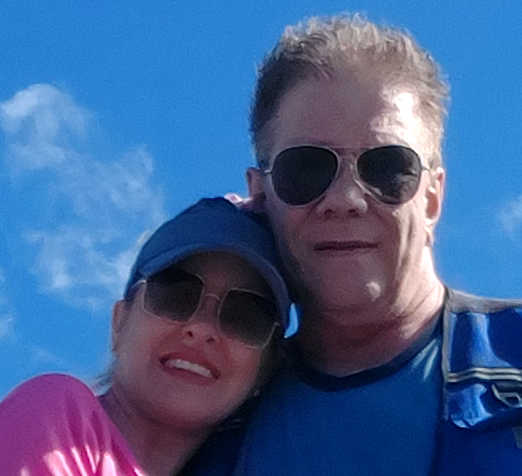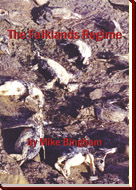 |
 |
| |
|
Sunday, 25th February 2001 - by Russell Miller |
||||||||||||||||||||||||||||||
| Twenty year's after Mrs Thatcher's victory cry, the Falklanders are getting rich - in the kind of society most Britons would envy. | ||||||||||||||||||||||||||||||
|
There can be few places in the world where the Union Flag files more proudly, or more defiantly, than on the Falkland Islands. Outside the Legislative Building in Port Stanley, the flag quivers in a wind that blows direct from the Antarctic, whipping up white horses across the harbour. As the 20th anniversary of the Falklands war draws near, everyone believes it was the best thing ever to have happened to the islands. 'It was horrible that people had to lose their lives,' says councillor Jan Cheek, 'but there's no doubt it was a blessing in disguise.' Councillor Bill Luxton, a sheep farmer who was deported from the islands during the war, recalls how Argentine dictator General Leopoldo Galtieri changed his life. 'If Galtieri had not invaded we'd all be Argentines now,' he says. 'The place would have fallen apart and they would have just walked in.' When, nearly 20 years ago, Argentina launched its ill-fated invasion, the Falklands were on the brink of total economic collapse. The islanders were being bled dry by absentee landlords and exhausted by the struggle to scratch a living from farming in one of the world's most remote and hostile environments. Young people were leaving in droves - in fact, there was no future for anyone. Then came the invasion, the heroic departure of the British task Force and the daunting realisation that retaking the islands was going to mean a battle in the South Atlantic for territory few British people knew existed. When the smoke cleared after two months of fighting, the islands' future was, paradoxically, assured. Firstly, the Falklands had assumed the highest possible political profile after years of neglect by successive British governments. But more importantly, the protection zone established around the islands included a fair chunk of the richest fishing grounds in the world. With reserves of �70 million, the Falkland Islands are totally self-sufficient, discounting the cost of defence. At the last count, the GNP equated to �21,000 for every man, woman and child. There is no unemployment. All this wealth is almost entirely due to a rubbery, wriggling creature called a cephalopod, more commonly known as a squid, millions of which obligingly spawn within the Falkland Islands conservation zone. 'Squid,' says John Barton, the Director of Fisheries, 'provide 60 pence of every pound the government spends'. Port Stanley still has red telephone boxes and the kind of courteous tweed, twin-set and pearls lifestyle that characterised Britain in the Fifties. There is no graffiti to be seen, no drugs and precious little crime. Sunday evensong in Stanley's modest cathedral always begins with the National Anthem. Islanders like to claim not just that they all know each other but they know each other's names. Newcomers, however, can find it hard to assimilate into such a close, community, as Michael Bingham can testify. Bingham, 43, arrived in the Falklands from North Wales in 1993 to work with Falklands Conservation, a UK-registered charity charged with protecting the islands' unique environment. As part of his duties, Bingham conducted a comprehensive survey of penguins, concluding that their dramatic decline was due to increased fishing in their traditional feeding grounds. This was not popular in a place where penguins were the number one tourist attraction and fishing was the major income earner. Worse was to come when he objected to the appointment of councillor Louis Clifton as chairman of Falklands Conservation. Clifton was a director of one of the oil companies given a licence to prospect for oil in Falkland waters. |
In 1997, Bingham was told his contract was not being renewed. He found another job and continued his research privately. But his applications to become a permanent resident were consistently turned down. In September 1998, he found a handgun and a box of bullets under the bed in his room. Panicking, he threw both into the harbour. Six weeks later, during a 'routine mail search', Falklands Custom officers discovered a pornographic video in a package addressed to Bingham, and Customs officers obtained a warrant to search his room. Bingham was convinced they were looking for the gun. In January 1998, Bingham was accused of making a false statement in an application form. When he was shown the form at Port Stanley Police station, he claimed it had been altered. The police later admitted that a mistake had been made transferring information from his original application to a computer. The charges were dropped. Falklands police asked the National Criminal Intelligence Service to carry out a criminal records check on Bingham. The NCIS reported that there was a Bingham with a record including car theft, burglary and affray, but pointed out that the dates of birth did not match and that fingerprints would be required to confirm his identity. However, Bingham was arrested and charged with concealing his previous convictions on his applications for residency. By this time he started receiving abusive telephone calls. He was spat at in the street and someone hung the severed head of a cat over his door. In April 1998, Falklands police admitted they got it wrong and all charges were withdrawn. Bingham, meanwhile, had complained to Dafydd Wigley, his former MP, who had taken up his case with John Battle, the Foreign Office Minister responsible for the Falklands. Battle concluded that apart from the mistake over the criminal record, there was no evidence of 'maladministration' either by the Falkland Islands government or the police. I put it to David Lang, the islands' portly Attorney General, that there appeared to have been a sustained campaign of vilification and harassment against Bingham. 'That is absolutely untrue,' he blustered, scarlet in the face. Publicly, most islanders would be glad to see the back of him, but in private there is some sympathy for him. An islander told me: 'What you have to understand is that this is a very close community. It doesn't do to cross the wrong people.' Meanwhile, there is excited talk about oil revenues generating the equivalent of �500,000 for every man, woman and child. Six exploratory wells have been drilled 90 miles north of the islands and the results are promising. Experts estimate there could be at least 60 billion barrels under the heaving, foam-flecked surface of the South Atlantic. Visit The Mail on Sunday online. |
|
||||||||||||||||||||||||||||



